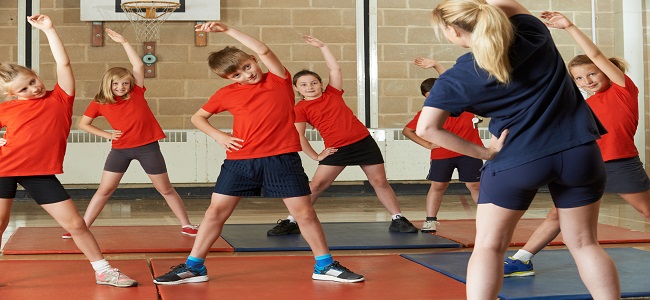Do you enjoy educating and assisting others in adopting a healthy lifestyle? A profession in physical education could be ideal for you if this is the case! There are many career opportunities in physical education, and there is a significant need for physical education coaches, teachers, and trainers.
There are physical education job paths that fit your interests and ambitions, whether you want to work with children, adults, or professional athletes. Let’s explore the intriguing career opportunities in physical education now!
Career Opportunities and Salary
So let’s start by saying that there are many opportunities for professions in physical education. In addition to the constant need for physical education teachers in schools, the demand for sports trainers and fitness instructors is also rising as society becomes more health aware.
Regarding pay, it may differ based on the particular position and area. For instance, physical education instructors’ median annual income is usually approximately $60,000. However, this might vary based on the educational level and the school district. Salary ranges from $35,000 to $50,000 annually for athletic trainers and sports coaches, respectively. Fitness instructors sometimes make less money and typically earn roughly $40,000.
There are, of course, more factors that may impact the labor market and pay. Jobs in physical education, for instance, can be easier to come by in some areas or states or during particular seasons of the year. Moreover, credentials and experience can influence pay; trainers with more training experience or expertise often make more money.
Career Opportunities in Physical Education
1. Physical Education Teacher
Teaching physical education can be a very satisfying profession. Working with children of all ages allows you to assist them in forming lifelong healthy habits. Additionally, you get to stay active and enjoy yourself while working; after all, who doesn’t enjoy playing video games all day?
You normally require a bachelor’s degree in physical education or a closely related discipline, as well as a teaching license or certification, to work as a physical education teacher. The average income for a physical education teacher is about $60,000 per year. However, this might change depending on your degree of education and experience, as well as the location and size of the school system.
2. Athletic Trainer
Having a profession as an athletic trainer may be both interesting and fulfilling. Working with athletes of all ages and skill levels, you’ll create conditioning and training programs as well as assist in injury prevention and treatment as an athletic trainer. An understanding of anatomy, physiology, and nutrition will also be necessary, as well as the ability to collaborate with other healthcare professionals, including doctors and physical therapists.
You normally require a bachelor’s degree in athletic training and certification from the Board of Certification for the Athletic Trainer (BOC) in order to work as an athletic trainer. Athletic trainers make an average of $50,000 a year. However, their earnings might vary depending on their degree of expertise and the sort of firm they work for. Sports groups, hospitals, and schools are just a few of the places where athletic trainers can work.
3. Sports Coach
As a sports coach, you’ll create training schedules, game plans, and teaching methods for athletes of various ages and skill levels. Additionally, you’ll be in charge of encouraging and motivating your team and assisting them in gaining the abilities and self-assurance necessary for success.
To operate as a sports coach, you often need past playing experience as well as knowledge of the rules and regulations. Depending on the level you want to coach at, you might also need additional training or education. The average yearly salary for sports coaches is from $35,000 to $40,000. However, it may be higher or lower depending on your level of experience and the sport you’re teaching.
4. Fitness Trainer
As a fitness professional, you’ll create and direct training regimens for customers of different ages and fitness levels to assist them in achieving their objectives. You must be aware of nutrition, anatomy, and physiology in addition to being able to inspire and motivate your customers to stick to their fitness objectives.
Typically, in order to work as a fitness trainer, you must hold a certification from a reputable institution, such as the American Council on Exercise (ACE) or the National Academy of Sports Medicine (NASM). Along with strong communication and interpersonal skills, you’ll also need a firm grasp of exercise science and human anatomy.
The average annual income for fitness trainers is roughly $40,000. However, depending on your degree of expertise and the kinds of customers you deal with, this figure can change.
5. Occupational Therapist
So, occupational therapists are basically superheroes who help people who are injured, sick, or disabled. They teach patients how to do everyday tasks, like getting dressed and cooking, and help them build up their strength and movement skills. They also work with patients who are recovering from big illnesses or injuries and help them get back to their normal lives.
Sometimes, they even show patients how to use special equipment, like wheelchairs and braces, to make their lives easier. If you want to be an occupational therapist, you gotta go to school and get a degree in occupational therapy from a program that’s been approved by the Accreditation Council for Occupational Therapy Education. It’s not easy work, but it’s really rewarding because you get to help people live their best lives.
Advantages of Working in Physical Education
- Having a direct and good influence on people’s lives: Working in physical education gives you a chance to do just that. You’ll be assisting people in leading happier and better lives, whether you’re educating kids on how to lead healthy, active lifestyles, aiding athletes in recovering from injuries or coaching customers to reach their fitness objectives.
- Flexibility: If you have other responsibilities or interests, physical education employment often provides flexible schedule alternatives. If you’re a fitness trainer, for instance, you might be able to choose your hours or work part-time to fit around other commitments.
- Different work settings: Depending on the career you select, you may have the chance to work in a range of settings. For instance, a sports coach may travel to various locales for tournaments or contests, whereas a physical education teacher may work in a school or community center.
- Prospects for growth and advancement: Careers in physical education can offer prospects for growth and promotion with the right experience and education. A fitness trainer may create a studio or gym, whereas a physical education teacher might become a department head or a school administrator.
- Personal fulfillment: Work in physical education may be personally gratifying since it enables you to explore your hobbies and ambitions while also assisting others. You’ll have the chance to work with people who like sports, health, and well-being, whether you’re a coach, teacher, athletic trainer, or fitness trainer.
Challenges of Working in Physical Education
- Physical requirements: If you have health issues or injuries, working in the physical education field may not be the best fit for you. For instance, becoming a fitness trainer might require you to stand for extended amounts of time or show customers how to perform exercises, both of which can be physically taxing.
- Dealing with injuries: Being a sports trainer or coach means that you’ll probably occasionally have to deal with injuries. As you’ll be assisting athletes in recovering from injuries and safely returning to their sport, this might be emotionally taxing.
- Long hours: Your physical education job may need you to work a lot of hours, particularly during busy seasons or periods of the year. For instance, if you’re a coach, you might have to travel or work on the weekends to attend games and contests.
- Limited job opportunities: Even though there is a demand for specialists in physical education, work prospects may be few in some regions or specializations. Finding work or moving up the corporate ladder may be challenging as a result.
- Economic restrictions: Because many physical education programs and organizations have small budgets, it may be difficult to secure the supplies and tools you need to do your job. This might make it challenging to provide your pupils or clients with the best instruction or training.
Conclusion
There are a number of career opportunities in Physical Education for people who are enthusiastic about sports, fitness, and helping others. You may follow several career routes in this fulfilling industry, from instructing physical education in schools to coaching sports teams and training clients as fitness trainers.
Frequently Asked Questions
What type of training is required to teach physical education?
A bachelor’s degree in physical education or a closely related discipline, as well as teaching certification or licensure, are often requirements for becoming a physical education teacher.
What type of credentials are required to work as a fitness trainer?
A certification from a reputable organization, such as the American Council on Exercise or the National Academy of Sports Medicine, is often required to work as a fitness trainer.
What sort of background is required to work as an athletic trainer?
A bachelor’s degree in athletic training or a closely related discipline, clinical experience, and certification from the Board of Certification for Athletic Trainers are normally requirements for becoming an athletic trainer.
What qualities do I need for a career in physical education?
Successful physical education practitioners frequently possess excellent interpersonal, communication, and leadership abilities, in addition to a love of sports, fitness, and volunteering.
What kind of employment options exist in physical education?
Teaching physical education in schools, coaching sports teams, training clients as fitness trainers, and working as an athletic trainer in sports medicine clinics or for professional sports teams are all examples of professions in physical education.
What is the typical pay for those who work in physical education?
Salary levels in physical education vary by area and profession. However, the Bureau of Labor Statistics reports that in May 2020, the median annual income for fitness instructors and trainers was $44,510, while the median annual wage for coaches and scouts was $35,750.
References
- Careers in Physical Education (PE) | Physical Education Jobs (successatschool.org)
- 10 Physical Education Jobs | Indeed.com






